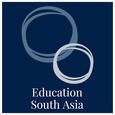Learning and Un-Learning in an English Classroom
I teach English Literature and Cultural Studies in an engineering college in Hyderabad (India). Most of my students come from schools that are geared towards preparation and coaching to get through engineering competitive exams. These institutions categorically train the students to ‘clear’ the IIT JEE. The insistence on learning Mathematics, Physics and Chemistry take precedence over learning or reading English (though it is a compulsory subject for the Board examinations). These students walk into my class, wondering and wearing quizzical looks on why they need to attend a Humanities class, when all they want to be are engineers.
My job as an instructor, therefore, becomes doubly challenging with regard to teaching this course: one, to get the students to realise the importance of Humanities in our lives; and second, to get them interested in it and engage with it.
In my first class, I play a song for them (Gin Soaked Boy by The Divine Comedy). The song ends with the line "Who am I?". This is the point of intervention for me. My first class is driven towards finding and discovering ourselves, in terms of whatever we think defines us. I am interested in questions of identity and of the self. As I gather responses from the class, a bunch of interesting observations come my way: Name, Gender, Religion, Parents/Family, where we come from, Ambitions, Interests etc. My next step is to problematise these defining ideas that the students provide me with--such as their names--as something that is ascribed to us. Only then does it then truly become representative of us. The fact that a name conveys a certain history about us (in terms of class, caste, gender, religion etc.)forces us to approach it with the paradigm of pre-conceived notions (cultural, political, social). The fact that we have certain interests is also mediated to us by the people we interact with. In a sense then, no choice that we make is an innocent one. The discussion around gender brings in the idea of it being social, as opposed to sex which is biological, and I also introduce the idea of gender performance in society. This exercise is geared towards the idea of finding and defining themselves.
Why is the idea of defining/knowing themselves so important? The IIT dream is still the most widely marketed dream in India. Every parent aspires to send their children to IIT in anticipation of a ‘fulfilling’ career. In most cases, this is an aspiration that is passed on from themselves onto the children. There is also peer pressure. Our school education (especially the specialized institutions that I talk about in the first paragraph) do not equip the students to make informed choices (such as pursuing another discipline for higher studies, vocational training, etc.). Additionally, the choice itself becomes a challenge, owing to their age and inexperience. Most of the students in my class are in an engineering institution, solely as a result of this.
My class exercise, then, is geared towards introspection. Identifying the self as the essential being that distinguishes us from the others, empowers the individual to consciously take decisions and make choices that are driven by the idea of defining the essence of the self, which manifests itself in the core of our characters. What one desires is central to what one is or aspires to become. It is important to think of the self as the individual, and not always mediated by the community. This is an important part in the path of self-construction. The exercise then hopefully becomes a touchstone for their journey towards self-discovery. Equipping our students with ‘choice’ is empowering for them. Enabling choice allows informed decision-making. The exercise becomes a constructivist approach towards learning, with dialogue at the center of it. (Needless to say, a lot of my students have gone on to pursue higher studies in the areas of Humanities and Social Sciences.) This also defines the trajectory of the course and what the students can expect out of it. Facilitating a discussion around identity, on Day One, defines our perspective on the need for this course in the first semester.
Throughout the semester, we continue to critically examine texts and engage with them from multiple perspectives. While I use Salman Rushdie’s Imaginary Homelands, to discuss ideas of migration, identity formation, memory, etc.; we use Sa’adat Hassan Manto’s Toba Tek Singh to engage with partition (which itself is a revelation, considering our understanding of partition is defined by school history books). While I use Chimamanda Adichie to discuss the problems with stereotypes, and singular narratives, I use Rabindranath Tagore’s A Wife’s Letter and Virginia Woolf’s A Room of One’s Own to discuss feminism and the androgynous nature of the mind of the author. These classes are essentially discussion-based, with a strong emphasis on reflective thinking.
The curriculum that we follow requires the students to take up three Humanities elective courses throughout their four years of instruction. This course in a way also prepares the ground for other Humanities courses that follow (Cultural Studies, Urban Studies, World Literature etc.) It allows them the choice to take any or all of these courses. And hopefully, these are just the first few steps towards forging a new identity, driven by choices that they make, and not ones that are made for them.
-----
Author Information: Paromita Bose is an Associate Professor at the Department of Humanities, Mahindra University, Hyderabad, India. For her Doctoral Thesis, she worked on the Social History of Dance in India. Her areas of research and interest are Gender Studies, Indian Writing, Cultural and Urban Studies. In the last few years, she has been developing methodologies to help aid teaching and learning of Humanities in an Engineering classroom (https://www.mahindraecolecentrale.edu.in/faculty/paromita-bose).
Suggested Citation: Paromita Bose. 2021. 'Learning and Unlearning in English Classroom', Think Pieces Series No. 18. Education.SouthAsia (https://educationsouthasia.web.ox.ac.uk/).



